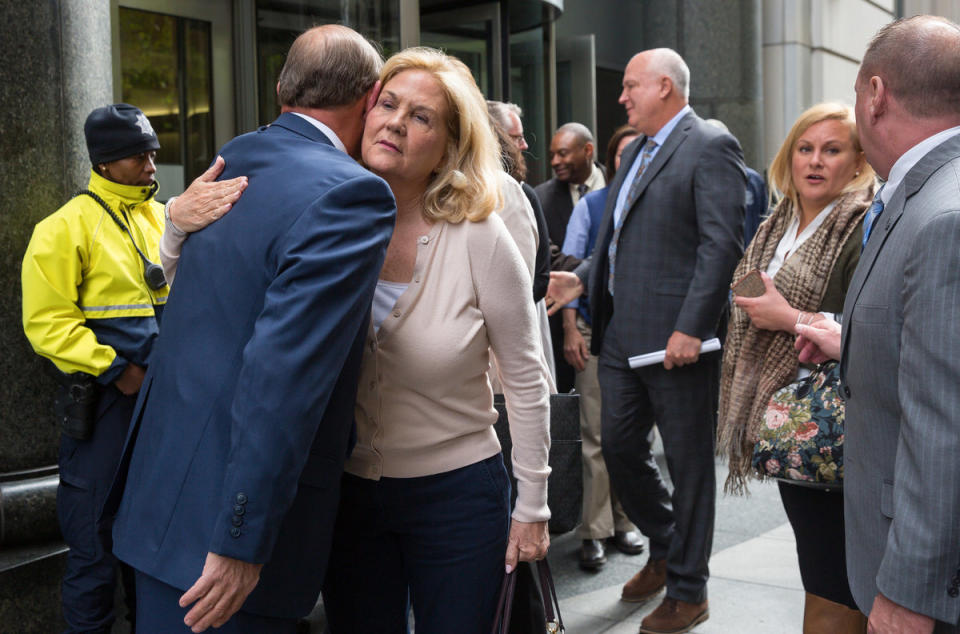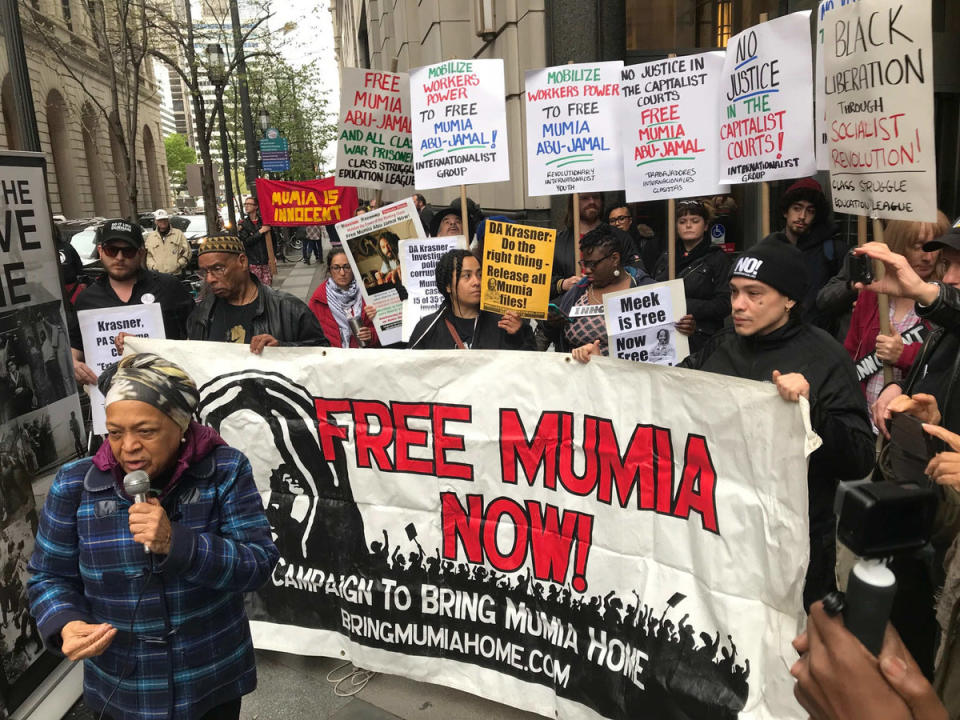Mumia Abu-Jamal isn't there, but he's the focus inside and outside Philly courthouse
For Maureen Faulkner, the last 37 years have been “exhausting,” she said Monday, standing outside the Criminal Justice Center. Half a block away, about 50 demonstrators supporting the man convicted of killing her husband called for his freedom.
“Mumia Abu-Jamal will not — not ever– be free,” Faulkner told a throng of reporters. “He’s going to be behind bars for the rest of his life, and I will make sure of that.”

Earlier in the morning, she sat in the second row of a packed courtroom, listening to lawyers again debate the fate of Abu-Jamal, now 64, the former Black Panther and sometime radio reporter, who is serving a life sentence for the Dec. 9, 1981, shooting death of Philadelphia Police Officer Daniel Faulkner, 25, at 13th and Locust Streets.
Abu-Jamal, who is housed at the State Correctional Institution-Mahanoy, in Schuylkill County, was not at the hearing.
At issue before Common Pleas Court Judge Leon Tucker was whether former state Supreme Court Justice Ronald Castille had violated Abu-Jamal’s constitutional rights when he did not recuse himself from reviews of Abu-Jamal’s appeals.
Defense lawyers for Abu-Jamal contend that Castille, who served as Philadelphia district attorney from 1986 to 1991 and who as the city’s top prosecutor had fought to uphold Abu-Jamal’s then-death sentence during his direct appeals, should have recused himself during appellate deliberations of Abu-Jamal’s case when he served on the state’s highest court.

The lawyers contend that a memo written by Castille when he was district attorney showed he had a significant involvement in pushing for Abu-Jamal to be executed.
They also point to a June 2016 U.S. Supreme Court ruling in a different case, Williams v. Pennsylvania, in which a majority of the nation’s high-court justices found that Castille was wrong to have participated in an appeal to the state Supreme Court by another convicted Philadelphia killer, Terrance Williams.

But Assistant District Attorney Tracey Kavanagh, supervisor of the District Attorney’s Post Conviction Relief Unit, told Tucker on Monday that a paralegal in the DA’s Office did not find the alleged missing Castille memo after an exhaustive search.
The judge made no ruling Monday, but scheduled another hearing in the matter for Aug. 30.
Maureen Faulkner, who flew in from California for the hearing with her current husband, Paul Palkovic, said Abu-Jamal’s supporters are “grabbing at straws.”
“With Ron Castille, there is no personal involvement,” she told reporters.
Abu-Jamal’s lawyers, Judith Ritter, a law professor at Widener University, and Samuel Spital, director of litigation at the NAACP Legal Defense and Educational Fund, contend that Castille, as DA, was trying to speed up the executions of convicted cop killers and should have later recused himself from Abu-Jamal’s case. They hope that Tucker finds that Castille was biased, and that Abu-Jamal gets a new appellate review by a higher state court and possibly a new trial.
Although Castille had authorized the death penalty in Williams’ case, Kavanagh said, in Abu-Jamal’s case he did not sign off on the death penalty and had no “significant, personal involvement” in it and was not biased.



